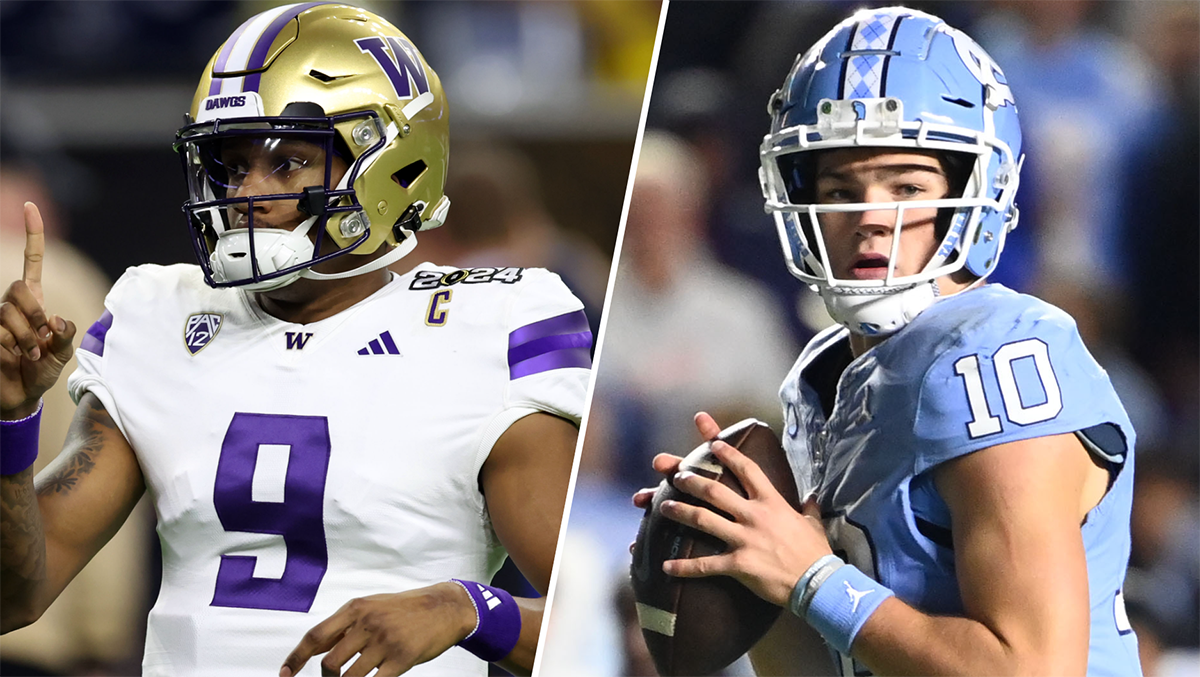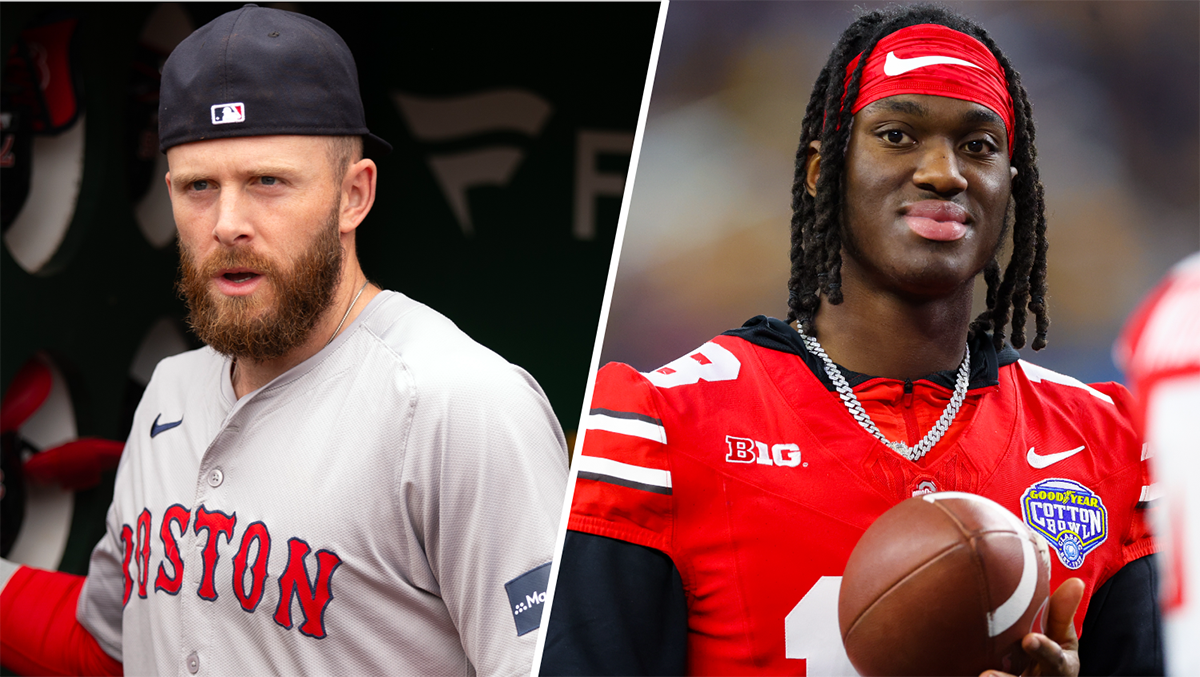It’s not as strong as a direct answer to a direct question, but sometimes (oftentimes) you have to read between the lines during a Bill Belichick press conference.
On Wednesday, it was obvious that Belichick wasn’t going chapter-and-verse on the reasons the team traded Jamie Collins, saying, “I’m not going to talk about the 500 things that could be talked about relative to it. It’s just too long, too cumbersome of a conversation.”
In reality, we got zero discussion of the 500 things that could be talked about. That invited oodles of conjecture, theorizing and an open invitation to believe that what former Patriots exec Mike Lombardi said about Collins’ declining play was a belied the team held.
To which Belichick would say, “Have at it, I don’t care what you conjecture.”
A good ol’ standoff.
WILL MINGO FILL THE VOID COLLINS LEAVES?
But a question posed later about decision-making tipping points -- while not directly asked about Collins -- does give strong insight into Belichick and the Patriots’ philosophy.
New England Patriots
That is, you let situations play out until enough information is submitted and then you act on the information with extreme decisiveness.
Responding to a question about whether the bye week was an opportune time to change schemes, Belichick said, “You have to answer that question every week, not just the bye week, and you do something that doesn’t work out well so what are your options, get rid of it or continue to do it and see if you can improve it.
“If you really feel convicted that you can do it well then you put more resources into it and try to improve it. At some point if it doesn’t go well then you might decide that ‘We’ve tried, we’ve invested a lot of time. We’ve invested in this and it’s still not working. Maybe it’s time to move on to something else.’ And then you make that decision.
“I can’t sit there and tell you what the book on that is,” he offered. “I think you evaluate each one individually but that’s what coaches do. That’s what we do. We evaluate it, we look at it and maybe it’s a difference of opinion in the room on the staff like ‘Look, I still think we can do it if we just work harder on it,’ versus ‘We’ve put a lot into it. Let’s do something else. We seem to be on a dead end here,’ for whatever the reasons are and there could be a multitude of reasons.”
Which returns us to Collins. There are a multitude of reasons he’ll spend the rest of the season in a bland orange helmet.
COLLINS COMPENSATION EXPLAINED
First, his production. He was edging toward becoming a platoon player, as last week’s personnel decision against Buffalo showed when rookie Elandon Roberts started against the run-happy Bills.
Second, his contract. He’s up at the end of the year and he ought to be seeking $10M per season based on his career arc prior to 2016. The Patriots weren’t paying a platoon player $10M per year. So they moved him early to get something in return.
Third, locker room peace. When an underpaid player is seeing his imagined pot of gold being moved out of reach to a higher shelf because of whatever – coaching decisions, playing time, production, his own attitude -- that player is going to be agitated. Collins is making $900K. I wholly believed he’d be a $10M player by St. Patrick’s Day, 2017. But not the way things are going now. The first eight games of 2016 could conceivably cost Collins tens of millions of dollars. I haven’t been dropped any dimes telling me Collins was agitating over his contract but who wouldn’t? He missed the first day of training camp and, though I was told it was expected and not contract-related, it’s still noteworthy in hindsight. He materialized on the team’s injury report on the Thursday before the Bengals game with a hip injury and missed that game. Then, prior to his final game with the team against the Bills last week, he was removed entirely from the injury report so, presumably, 100 percent. And then played a reduced role. None of those things are unprecedented alone. And taken together, they are merely unusual but not alarming. But in the wake of the trade, it invites speculation that there was stuff going on behind the scenes, a participatory tug-of-war.
Belichick -- still responding to the scheme question -- said, “In the end you have to make that decision,” Belichick added. “It’s a bye week decision but it’s a weekly decision, too. You just have to decide what direction you want to go. I think in a lot of cases you can improve things. [For] some teams that’s just not their thing. You have to find something else but that’s true in every season. Each year I think you have to find a little bit of a different way to win. You can’t do everything exactly the same way you did it a previous year. Your team has changed and the teams that you’re playing may have changed or you may be playing different teams and maybe that dictates that you do something a little differently than you did it in the past against a different set of opponents.
“Those are the judgments that the head coach, the coordinators and the position coaches make whether it’s an overall scheme thing or whether it’s an individual technique thing,” he explained. “It can be a technique thing, too, like ‘Look, here’s the way we’re doing this technique but it’s not as effective for us as we want it to be.’ Do we keep working on it or do we modify the technique and do something a little bit different for whatever the reasons are; our players, their players, their scheme, whatever it happens to be.”
In Collins’ case -- and the case of a defense that’s been too permissive and is not playing at championship level despite the numbers -- a crossroads was reached after eight weeks and a full offseason of gathering intel.
And these words from Belichick can be directly applied to the defensive changes we may see after the bye.
“We’ve gotten to points, … it could be anytime really and just say ‘Look, I’m done with this.’ I’ve said that before -- ‘I’ve seen enough. I’m done with it. We’re going to do something else. We’ve tried and it just didn’t work,’ or ‘I believe in it. We should be better at it than we are.’ It’s maybe circumstantial why we don’t have production.
Eight guys are good, one guy is bad. The next time its eight guys are good and a different guy that [isn’t]. If we just get this right we’ll be OK but we just haven’t been able to do it. Well maybe you keep trying.”
Obviously, Belichick had seen enough from the defense as it was constituted and executed. And -- likely -- from Collins as well.


